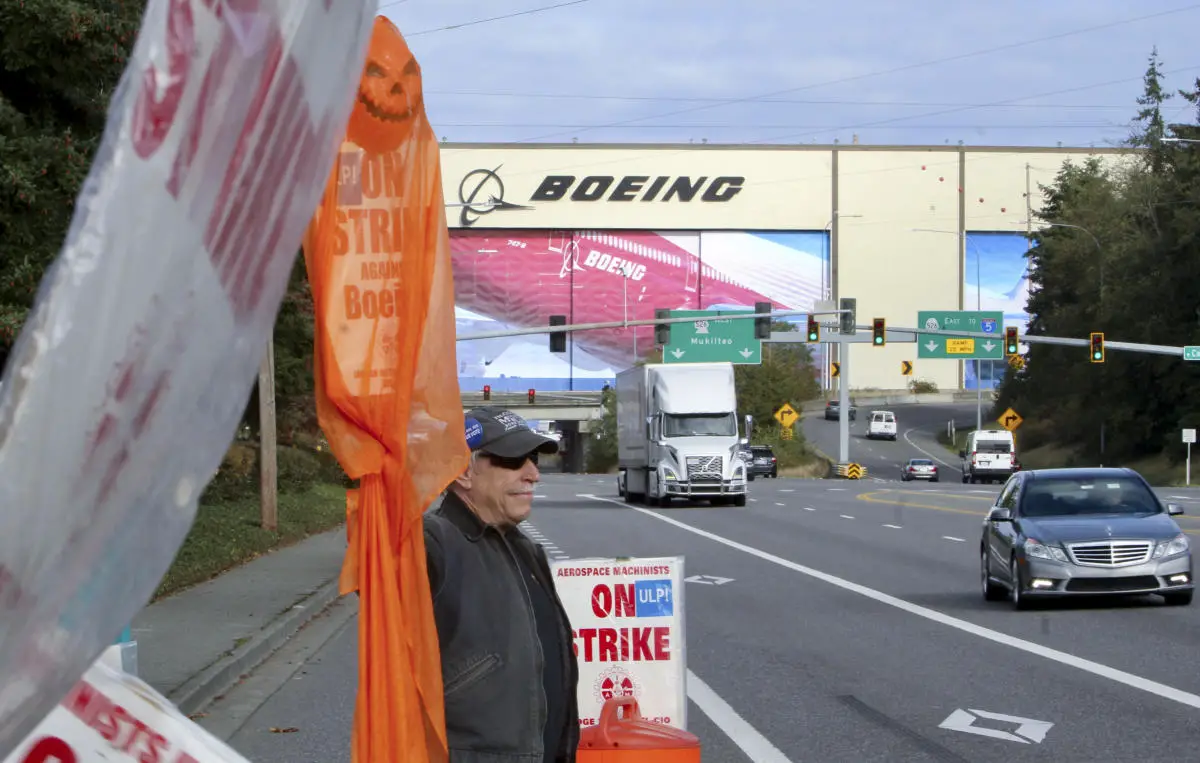EVERETT, Wash. (AP) — Wednesday is shaping up as one of the most significant days in a volatile year for Boeing, which is expected to report a huge third-quarter loss, introduce its new CEO on his first earnings call, and learn if machinists will end a strike that has crippled the company’s aircraft production for more than a month.
The strike is an early test for Kelly Ortberg, a Boeing outsider who became CEO in August.
Ortberg has already announced large-scale layoffs and a plan to raise enough cash to avoid a bankruptcy filing. He needs to convince federal regulators that Boeing is fixing its safety culture and is ready to boost production of the 737 Max — a crucial step to bring in much-needed cash.
Boeing can’t produce any new 737s, however, until it ends the five-week-old strike by 33,000 machinists that has shut down assembly plants in the Seattle area.
Ortberg has “got a lot on his plate, but he probably is laser-focused on getting this negotiation completed. That’s the closest alligator to the boat,” said Tony Bancroft, portfolio manager at Gabelli Funds, a Boeing investor.
Boeing hasn’t had a profitable year since 2018, and the situation is about to get worse before it gets better.
Analysts expect Boeing to announce Wednesday that it lost about $6 billion in the third quarter, including $3 billion in charges related to airline jets and $2 billion in losses for its defense and space programs.
Investors will be looking for Ortberg to project calm, determination and urgency as he presides over an earnings call for the first time since he ran Rockwell Collins, a maker of avionics and flight controls for airline and military planes, in the last decade.
The biggest news of the day, however, is likely to come Wednesday evening, when the International Association of Machinists and Aerospace Workers reveals whether striking workers are ready to go back to their jobs.
They will vote at union halls in the Seattle area and elsewhere on a Boeing offer that includes pay raises of 35% over four years, $7,000 ratification bonuses, and the retention of performance bonuses that Boeing wanted to eliminate.
Boeing has held firm in resisting a union demand to restore the traditional pension plan that was frozen a decade. However, older workers would get a slight increase in their monthly pension payouts.
At a picket line outside Boeing’s factory in Everett, Washington, some machinists encourage co-workers to vote no on the proposal.
“The pension should have been the top priority. We all said that was our top priority, along with wage,” said Larry Best, a customer-quality coordinator with 38 years at Boeing. “Now is the prime opportunity in a prime time to get our pension back, and we all need to stay out and dig our heels in.”


Leave a Comment